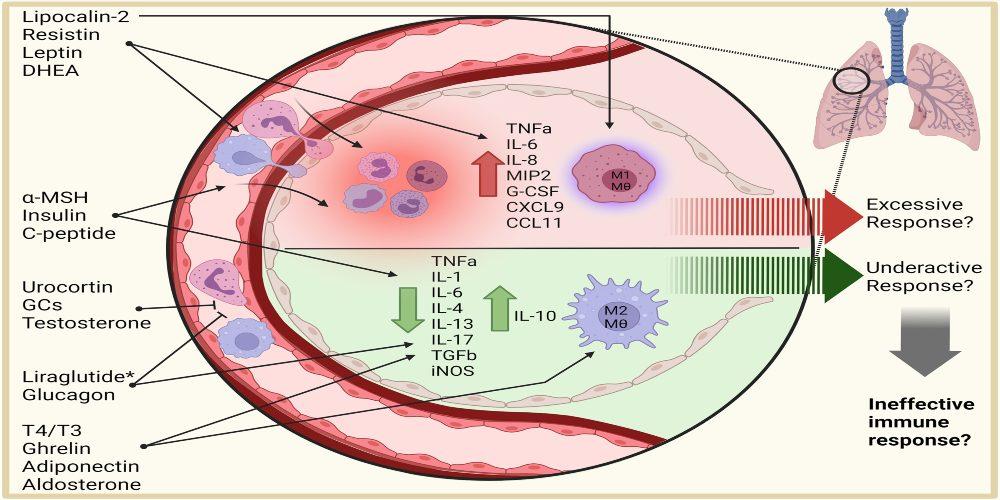Health
Exploring The Role Of Peptides In The Body’s Immune System

Peptides are short chains of amino acids which are smaller than proteins and typically contain fewer than 50 amino acids. For this reason, peptides are known as the building blocks of protein. Peptides can be found naturally in the body or can be synthesized in the lab for use in research and medicine. In this article, we’ll take a look at the roles peptides play in our bodies.
Table of Contents
Peptides In The Immune System
Peptides play a critical role in the body’s immune system. They are involved in many different aspects of the immune response, including:
● Antimicrobial Activity
Some peptides have antimicrobial activity, meaning that they can kill or inhibit the growth of bacteria, viruses, and fungi. For example, cathelicidins and defensins are two types of peptides that have antimicrobial activity.
● Immune Regulation
Peptides can also help to regulate the immune response. They can act as signals that tell immune cells when to become activated or when to stop responding. One example of a peptide that regulates the immune response is interleukin-10 (IL-10), which helps to reduce inflammation.
● Antigen Presentation
Peptides are also involved in antigen presentation, which is the process by which immune cells recognize and respond to foreign invaders. Antigens are small pieces of foreign substances, such as bacteria or viruses, that the immune system recognizes as a threat.
Peptides play a role in presenting antigens to immune cells, which helps to activate the immune response. For this reason, many researchers use peptides in creating vaccines safe for use. Peptides for Sale are often used in the research process for better results.
Peptides As Therapeutic Agents
Given their important role in the immune system, peptides have potential as therapeutic agents. Researchers are exploring a variety of ways in which peptides could be used to treat or prevent diseases.
● Antimicrobial Peptides
Antimicrobial peptides have potential as a new class of antibiotics. Because they work differently than traditional antibiotics, they may be effective against antibiotic-resistant bacteria.
● Immune Modulators
Peptides that regulate the immune response could be used to treat inflammatory diseases, such as rheumatoid arthritis or Crohn’s disease. By reducing inflammation, these peptides could help to alleviate symptoms and slow disease progression.
● Cancer Therapy
Peptides are also being explored as potential cancer therapies. Peptides that target specific cancer cells could be used to deliver chemotherapy drugs directly to the tumor, reducing the risk of side effects.
Here are some more roles that peptides play in other systems in the human body:
Endocrine System
Peptides are important signaling molecules in the endocrine system. For example, insulin is a peptide hormone that regulates blood sugar levels. Other peptide hormones, such as growth hormone and oxytocin, are involved in growth and development, as well as social bonding and reproduction.
Nervous System
Peptides are also involved in the functioning of the nervous system. Neuropeptides, such as endorphins and enkephalins, play a role in regulating pain and mood. Other neuropeptides, such as substance P, are involved in the transmission of pain signals.
Digestive System
Peptides are important for the digestion and absorption of food in the digestive system. Enzymes in the stomach and small intestine break down proteins into peptides and amino acids, which can then be absorbed into the bloodstream and used by the body.
Musculoskeletal System
Peptides are also involved in the functioning of the musculoskeletal system. For example, osteocalcin is a peptide hormone produced by bone cells that regulates bone formation and turnover. Other peptides, such as myostatin, are involved in regulating muscle growth and development.
Conclusion
Overall, peptides play a wide range of roles in the human body, from signaling molecules to structural components of tissues and organs. As research into the functions of peptides continues, we may uncover even more important roles for these small but mighty molecules.
Read more – How does PEMF affect the immune system?

-

 Business3 years ago
Business3 years agoHow to Do Long-Distance Moves with Children
-

 Travel2 years ago
Travel2 years agoQuick Guide: Moving To Santa Rosa?
-

 Real Estate3 years ago
Real Estate3 years agoWhy Dubai Festival City is a Great Neighbourhood for Young Learners
-

 Business3 years ago
Business3 years agoIs Guest Posting a Good Inbound Marketing Strategy?
-

 Business1 year ago
Business1 year agoThe Ultimate Guide To Thriving In Your Printing Franchise
-

 Business1 year ago
Business1 year agoExploring The Benefits And Challenges Of Restaurant Franchising
-

 Tech3 years ago
Tech3 years agoCyber Table That Will Change Your Life
-

 Lifestyle1 year ago
Lifestyle1 year agoDallas’ Hidden Gems: 6 Must-Try Restaurants Off The Beaten Path!









Recent Comments